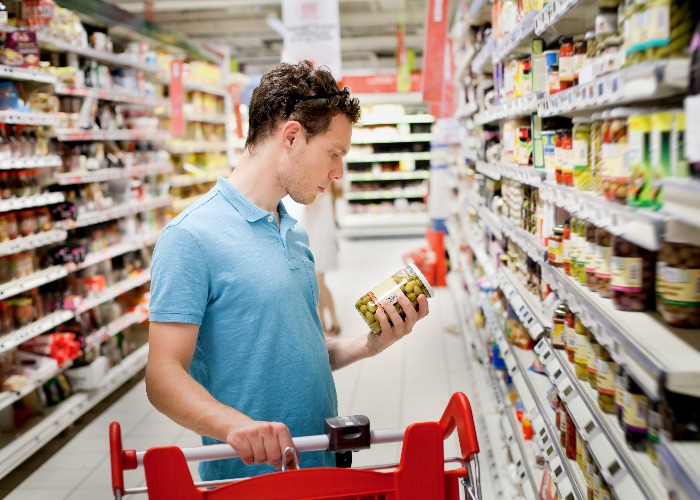Cost of living crisis: supermarkets 'hiking own-brand budget items fastest'

Moving to own-brand items might seem like a way to save cash, yet these are seeing the fastest price increases.
There’s no shortage of areas where our finances are under pressure at the moment, from energy bills to fuel costs.
One of the most pronounced challenges comes from our food bills though, which has seen price hikes at a far greater rate than any other household spends.
Indeed, according to the Office for National Statistics, food price inflation is at its highest level since the late 1970s.
There are plenty of ways that we might look to reduce the money we are spending at supermarkets (read our top tips here), such as dropping down to a cheaper brand.
However, opting for apparent budget items may not provide your finances with the helping hand they once might have.
The consumer group Which? conducts a supermarket price tracker, which looks specifically at how price changes vary between supermarket value ranges, brand ranges, and premium ranges.
And it found that the price increases on value ranges are strikingly higher than for other types of grocery item.
Between January 2022 and January this year, own-label budget items grew by 21.6% according to the study.
That’s compared with an 18.9% growth in price for own-label standard products, 13.4% for own-label premium products and 13.2% for branded items.
Overall, food and drink prices were found to have risen by 15.9%.
The worst offenders - prices up 87%
Of course, these figures are just the averages, so there are individual items which have seen particularly noteworthy changes in price.
For example, Which? found that the price of muesli at Sainsbury’s had grown by a whopping 87.5%, moving from £1.20 to £2.25.
At Tesco, the cost of tins of sliced carrots jumped from 20p to 33p (a 63% rise), while pork sausages at Asda moved from 80p to £1.27, a 58.2% increase.
Who pays more?
Inflation of any kind impacts different people in different ways.
Hikes to energy bills, for example, are more likely to hit older people since they are more likely to be at home during the day, rather than younger people who will tend to be in an office or other workspace during working hours.
It’s a similar situation with these price rises. All of us are feeling the effects of the price hikes seen on food overall, but the least well-off households ‒ who historically are the most likely to be purchasing these value brands ‒ are going to be experiencing the biggest impact.
That’s really concerning at a time of rising prices across the board. It’s not just food prices that are going up, after all, but virtually everything given the incredible rate of inflation we are still seeing.
That supposed ‘budget’ ranges are growing in price faster than their more costly rivals only accentuates the pressure these households will be feeling around their finances.
The supermarkets raising prices fastest
It’s important to remember that the price increases are not uniform across different supermarkets; some are moving a bit faster in hiking their bills than others.
A separate Which? study looked into just this, and found that Aldi and Lidl have actually been the fastest at raising prices.
At Aldi, prices have increased by an average of 22.5% over the last 12 months, while at Lidl they have jumped by 23.6%.
By contrast, prices at Ocado are up by 10.4%, while at Sainsbury’s they are up by 13.2%.
Now, Aldi and Lidl are likely still going to be cheaper overall than their more costly rivals. But the savings from shopping at these budget names may not be quite so pronounced as they were a year ago.
Are supermarkets making life harder?
It’s worth noting that the Competition and Markets Authority (CMA) launched a new investigation into supermarkets in January.
It is specifically looking into unit pricing, and how easy it is for shoppers to truly compare the prices of individual items so that they can make the right decision for their finances.
A previous investigation from the CMA found “complexities and inconsistencies” with unit pricing made it tougher for shoppers to work out the best deal, and it wants to ensure that supermarkets have not slipped back into bad habits.
The reality is that while understanding what you are getting for your money has always been important, the cost of living crisis makes it absolutely vital that we all understand the prices we are presented with.
Only then can we make a true, informed decision about where to shop and what to buy.
Comments
Be the first to comment
Do you want to comment on this article? You need to be signed in for this feature